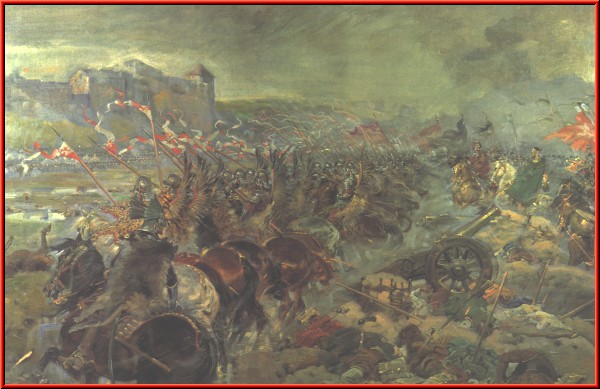Part 18: XVIII. Anselm III, Balian I 1552-1595 A.D.
King Anselm III was afraid of war.
Tensions were high in the north. Both Byzantium and the Russian Rum were angry over Jerusalem's treatment of Orthodox Christians in Ethiopia. King Anselm felt sure that they would take advantage of the death of Martin III to invade.
Surprisingly, they didn't.
Instead the Timurid Empire did.
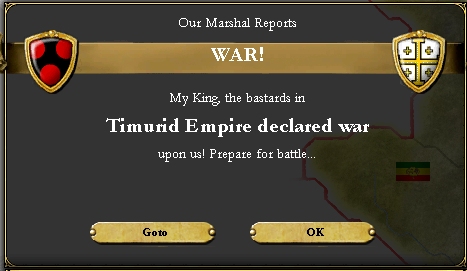
Unfortunately for them, the Timurid Empire was terribly backward. They ended up charging the Kingdom's cannons and matchlock musketeers with spears and bows and arrows. It was a slaughter. King Anselm however, decided not to press his advantage too hard. The last thing Jerusalem needed was to be overextended in the east and have the Byzantines or Russian Rum stab him in the back.
For their part, the Timurid rapidly realized they were outclassed and begged for a peace treaty, which Anselm III generously granted in order to keep his northern border well-garrisoned.
That fall, Catholic refugees from Calvanist Bohemia arrive in force and settle in the Sini, through which Moses once led his people to the Promised Land. Despite the fact they are of a different culture, King Anselm III welcomes them with open arms. After all, the truly Faithful are all brothers in Christ.
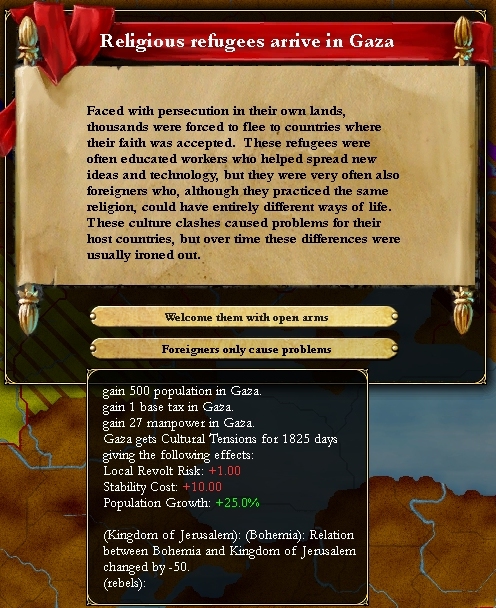
In 1554, Scotland reorganizes itself into the Scottish Union, giving their conquered English subjects more rights, although remaining supreme themselves.
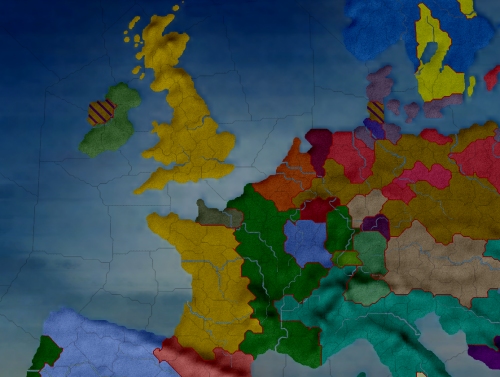
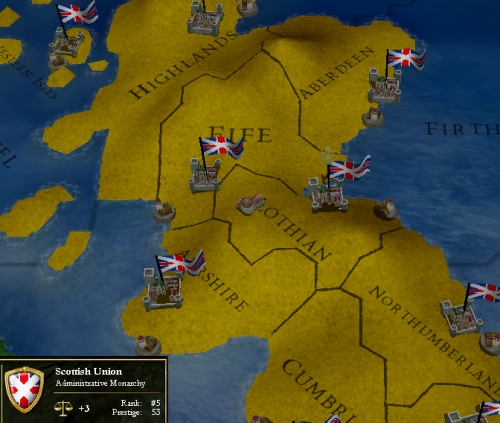
Meanwhile, the crisis over Ethiopia isn't over. A merchant caravan heading south through Egypt to trade with Ethiopians is stopped by the Inquisition of Jerusalem and accused of lending aid to Orthodox rebels. Venice takes the incident as a insult, relations deteriorate, and they spin it into an excuse for war.
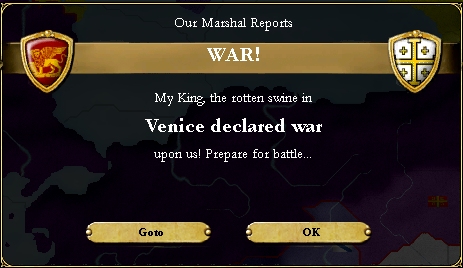
Venice lands troops on Cyprus, but they're quickly defeated, and King Anselm III launches a counter attack on Sicily.
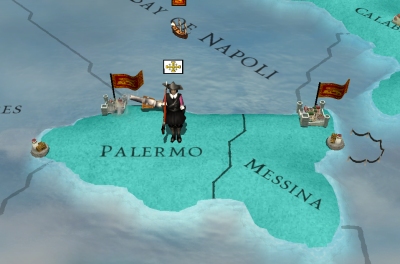
Much to his own surprise, King Anselms' fleet manages to keep Venice from reinforcing Sicily. The island falls to assault. Knowing full well that it would be extremely difficult to carry the war to mainland Italy, and having no desire to do so, King Anselm requests a white peace from the King of Venice and receives it in the fall of 1556.
I was really expecting a massive storm of war declarations, but I guess maybe EUIII is a bit different from EUII in that regard. After the war with Venice my badboy drops under the limit.
1556 brought other good news.
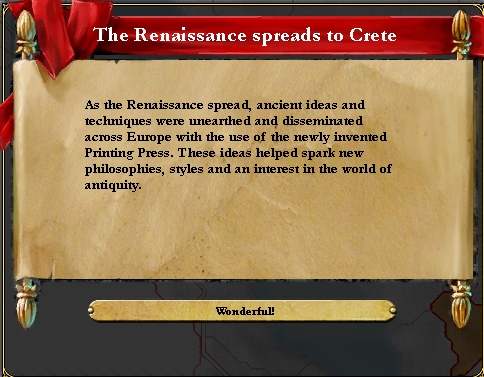
Reliable maps were also beginning to be published in Europe of the settlements and discoveries in the New World.
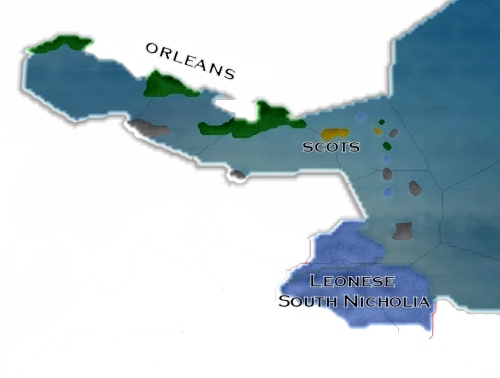
Leon was leading the colonial charge in South Nicholia, having settled several of the islands and a large swath of coast. Orleans had grabbed the largest islands, and founded several sugar plantations, which were said to be quite profitable. There were also rumors that the Scottish Union had a handful of colonies in a land variously called 'Brazil' or 'Amazonia'.
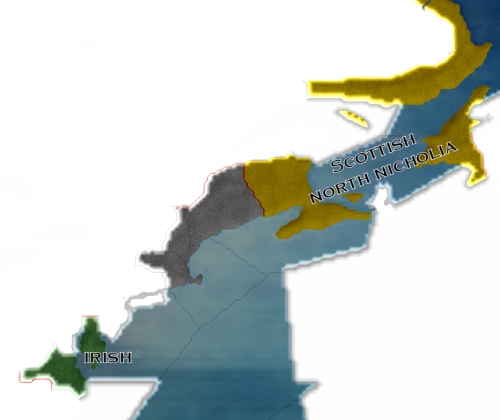
The Scots were also settling in wooded North Nicholia, and their cousins, the Irish, had settled around a large bay in the middle of the continent.
Also in 1556, construction of Constables began in many provinces in the Kingdom of Jerusalem. They would greatly help with problems of tax evasion and corruption in her far-flung reaches.
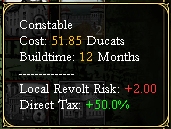
Over the next few years, Leon would force Orleans to cede the land they inherited from the defunct Kingdom of Portugal, and the Russian Rum would, in collusion with Denmark, partition Sweden, leaving behind only a tiny rump state.
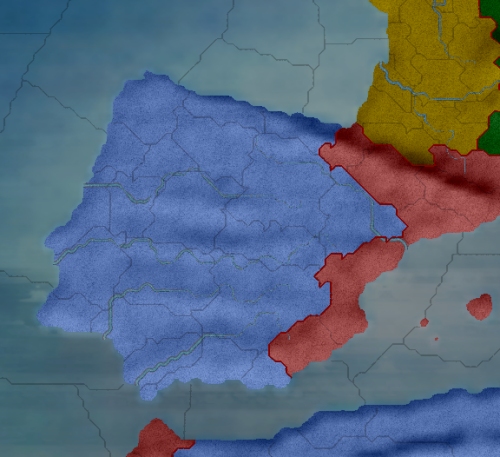
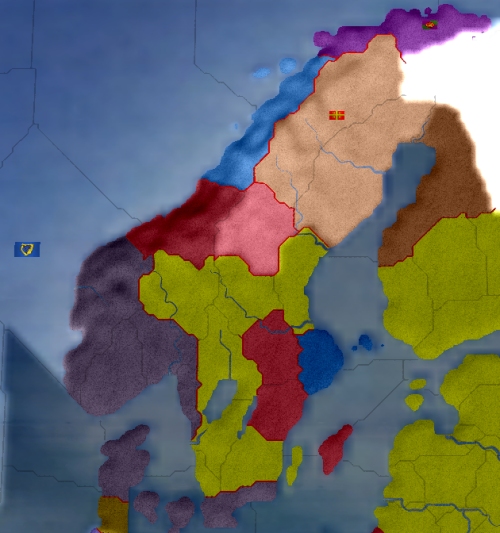
More shockingly, the Scottish Union suffered a humiliating defeat at the hands of the Huron tribe, a group of primitive North Nicholian natives. The Scots were actually forced to cede some of their colonial lands to the aggressive pagans. It was a terrible embarrassment for the Scottish King.
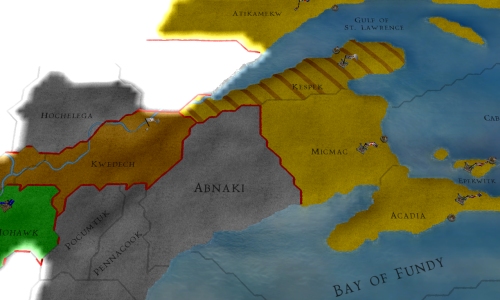
One of King Anselm's last acts was to oversee the strengthening and construction of new forts and castles along the mountainous border between Jerusalem and the Russian Rum. The massive northern state often had huge numbers of troops on the border and a strong fortification effort would hopefully discourage any attack.
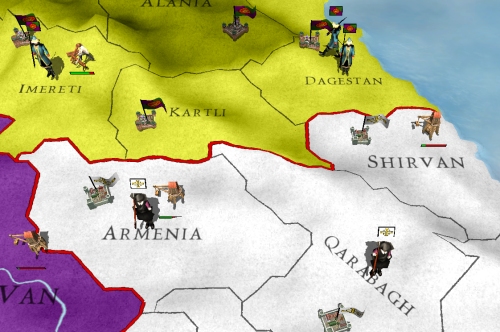
In 1573, King Anselm III died and his son, Balian succeeded him on the throne. Although no warrior, Balian was otherwise well regarded and looked to be a promising King.
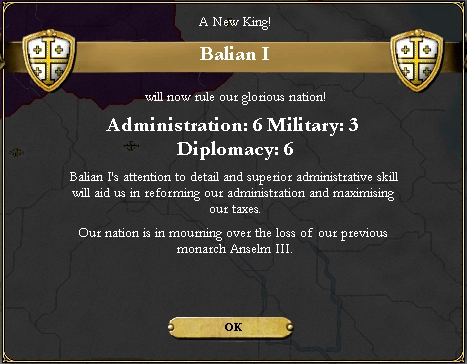
Much of Balian's reign was quiet and peaceful. He took out a large loan to fund the construction of another Jesuit University and completed the construction of a network of constables throughout the Kingdom.
To the east, the Rum and the Indian nation of Delhi carved large chunks out of the decrepit Timurid Empire. In the north, the Byzantines annexed Finland, planting a strong foothold in Scandinavia of all places. Venice also continued to expand, pushing into Bavaria and Orleans.
In 1588 a series of miraculous events and visitations occurred on the island of Cyprus. A monk claimed to have been visited by the shade of King Baldwin IV, warning of war and betrayal. A child, thought dead, was healed. A statue of the virgin was seen weeping tears of blood. Strange lights were seen in the sky. These signs were taken as final confirmation of what a Papal commission had already nearly concluded. King Baldwin IV was made a saint of the Holy Roman Catholic Church.
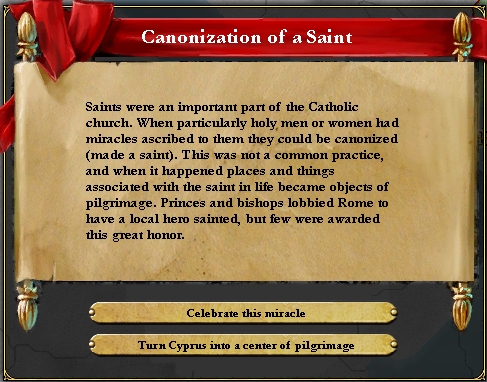
Also that year, King Balian instituted a program of scientific reforms and learning to attempt to emulate the rest of Europe. Christ's Kingdom would not linger in the dark ages forever.

Scientific Revolution will help a little bit, seeing as how our 10% inflation and our maxed narrowminded slider gives us a -20% tech speed.
Shockingly, in 1590, the Pope declared that King Charles the Mad, the son of Saint Baldwin was also a saint. Again there were apparitions. Warnings. Several guardsmen in Baghdad reported being approached by a 'wild-eyed madman' who, between rants about philandering Italians, attempted to reassure them that 'the city would not fall'.
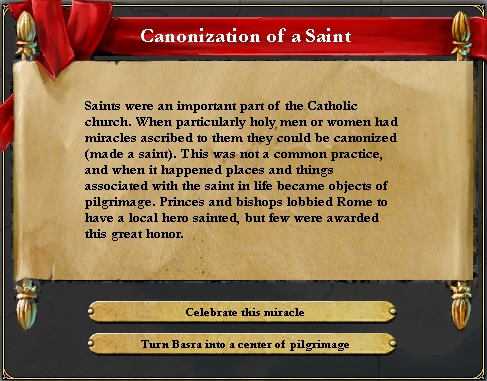
By now the reputation of the Kingdom was nearly spotless once again and King Balian decided to move against the crumbling Timurid Empire as well as the tiny remnant of Oman. War was declared in early 1590.
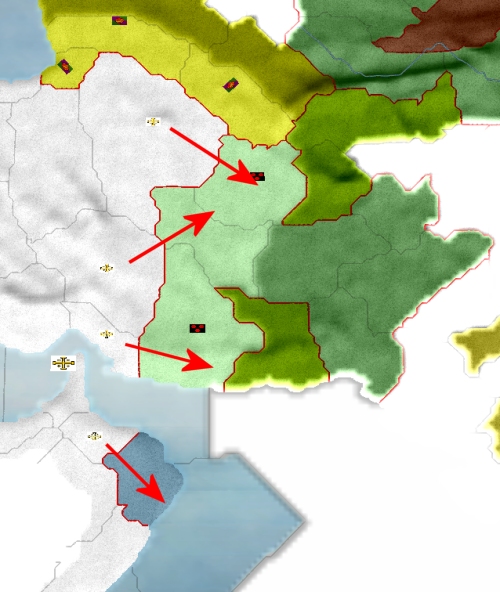
Yemen launched a attack of their own, in support of Oman, as it was clear that once King Balian had finished this war they would be next.
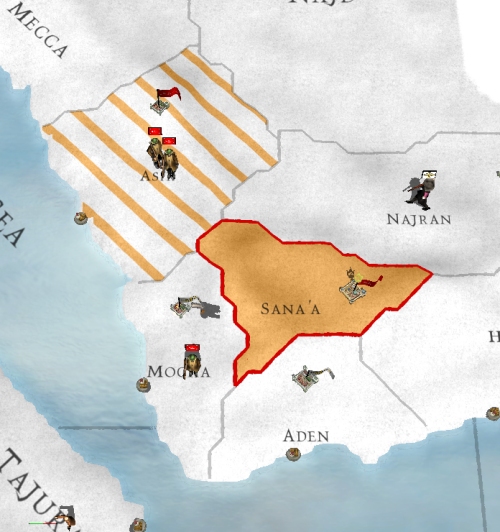
By now news of Scottish and Leonese exploration of the Indian ocean had begun to spread to Jerusalem and fleets of the Kingdom were able to hunt down Yemen's only holding outside of Arabia, and island called Socotra, which was promptly invaded. .
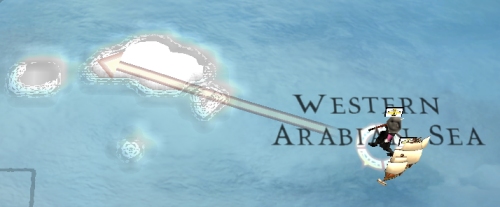
By the end of 1590 everything was going well. Oman had been annexed. Yemen had ceded Socotra, and the Timurid's were melting away before the fury of the Kingdom.
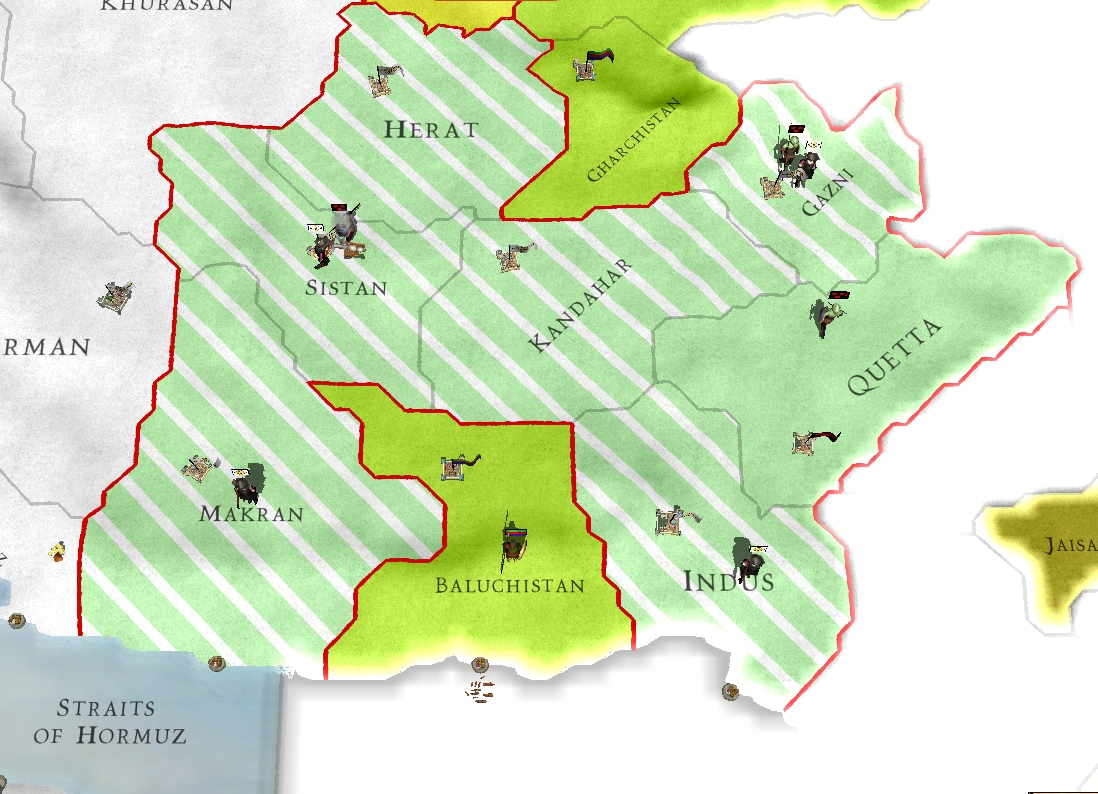
Balian rode at the head of his troops in glory. Truly, Christ was on the side of Jerusalem. Nothing could stand before Christ's victorious Kingdom. Nothing could stop her. She was invincible.
Later, after everything had changed and he lay dying, King Balian would wish he had listened to the warnings of Saint Baldwin and Saint Charles.
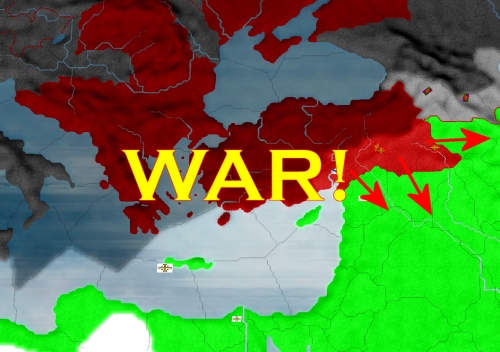
In January of 1591, with the bulk of King Balian's armies deep in Timurid territory, the Pricipality of Adana declared war on the Kingdom of Jerusalem. The Byzantine Empire joined them. It was the betrayal King Anselm III had feared, decades before.
Aleppo fell within days as the small Kingdom garrison fell back to regroup and the tiny army in Egypt rushed north to reinforce the capital.
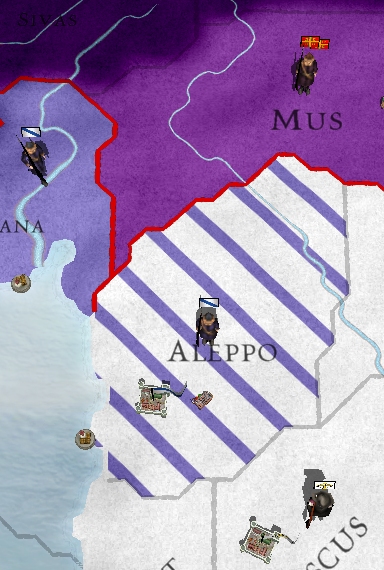
Fortunately, the Timurids saw their chance for a 'victory', and offered King Balian a peace treaty if he would return to the pre-war borders. He leapt at the chance and began to rush his armies back towards Jerusalem and this new war.
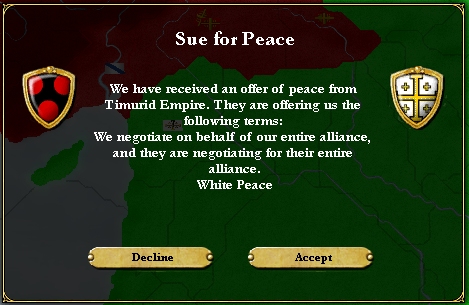
The fleet in Alexandria was sent to blockade the Aegean, hopefully preventing any Byzantine landings on the Egyptian or Palestinian coast.
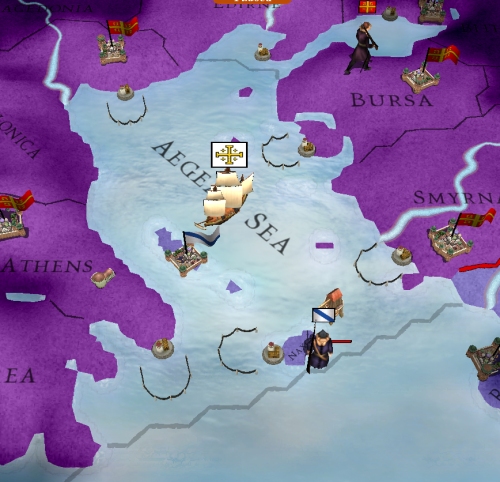
Meanwhile, the Byzantine armies continued their advance, crushing a rear guard left in Dayr Az Zor and rolling south into Damascus, just a short ways from Jerusalem itself.
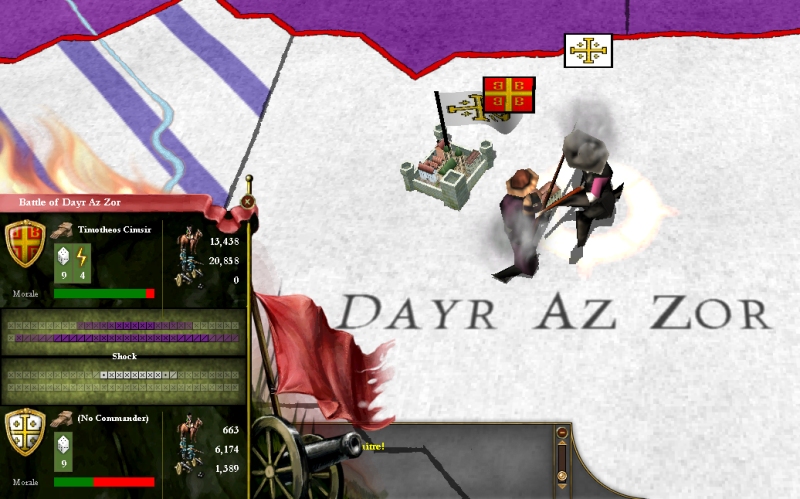
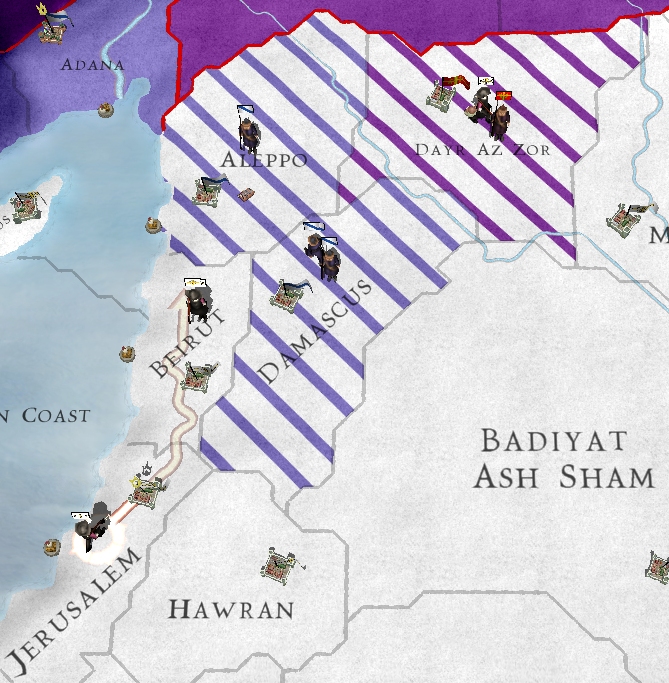
Only in Armenia did outnumbered troops of the Kingdom manage to halt the Byzantine attack. The fortresses that King Anselm III had built were coming in useful after all, just against a different enemy.
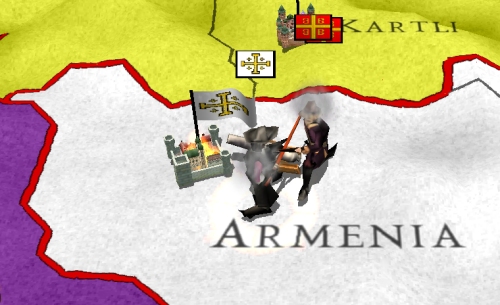
That summer, at the head of 20,000 troops, King Balian charged north in an attempt to retake Aleppo and threaten the flank of the Orthodox advance.
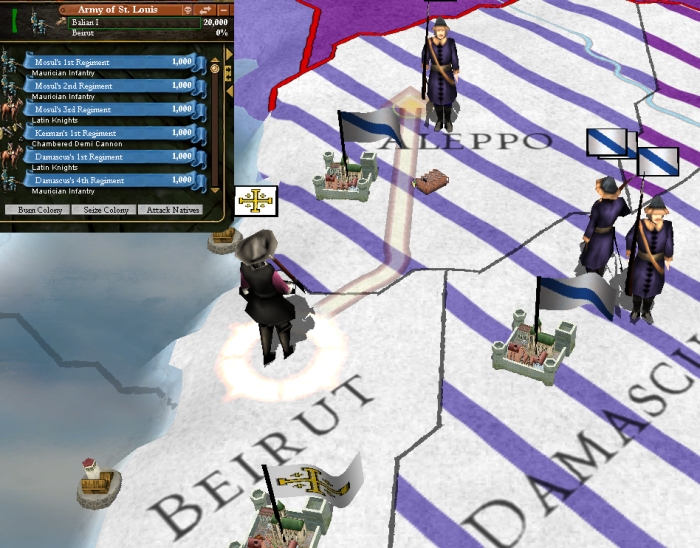
But King Balian was no great military leader. Despite the fact that he outnumbered the enemy and had a huge advantage in cannons, he was soundly trounced by the forces of Adana. Worse still, his son and heir was killed in the battle and he himself was wounded.
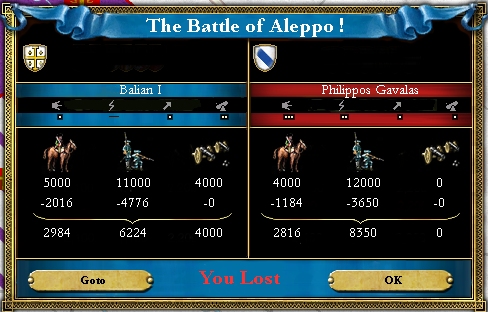
A few days later, on the floor a little chapel north of Jerusalem, he died. His youngest son, Baldwin was not yet old enough to take the throne.
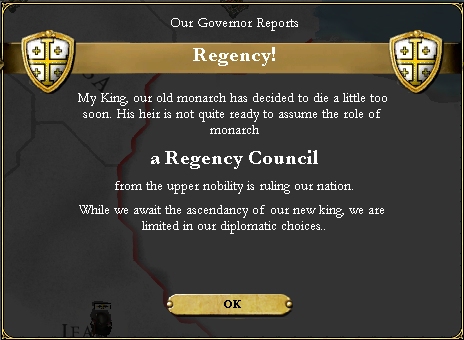
While the armies of Jerusalem struggled to regroup and reorganize, the Byzantine Empire took Mosul and marched on Baghdad, arriving outside the city in the March of 1592. A daring counterattack broke their siege, fulfilling the prophecy of Saint Charles the Mad.

In the summer of 1592, the tide of battle slowly changed, and the armies of Jerusalem, heartened by their victory outside Baghdad gradually pushed back the invader. By the fall, Damascus and Aleppo had been taken and an army had pushed into Byzantine territory, although it was quickly pushed back out.
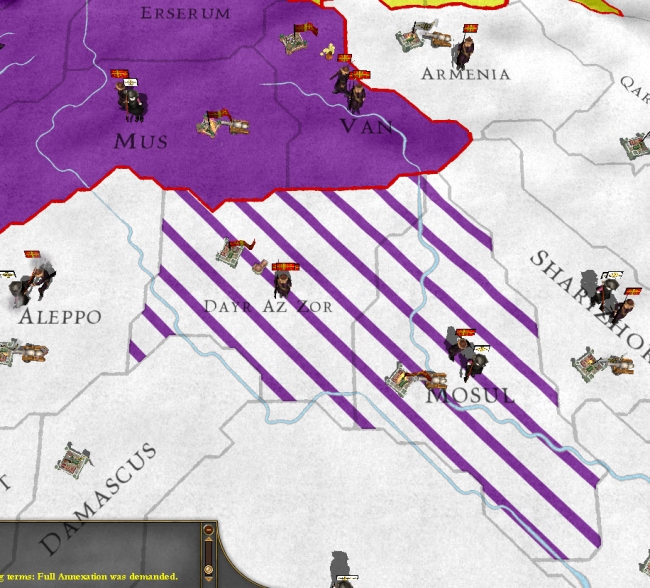
Aleppo, outclassed and afraid of invasion demanded a pay off for peace, one that Jerusalem was only too happy to pay.
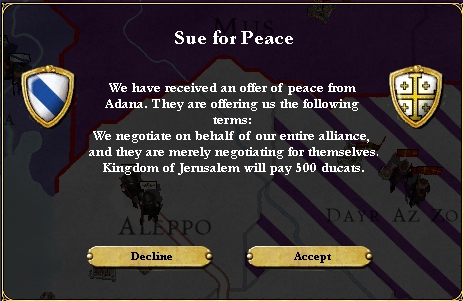
By the fall all of Jerusalem's territory had been reclaimed and the Regency Council was attempting a counter attack.
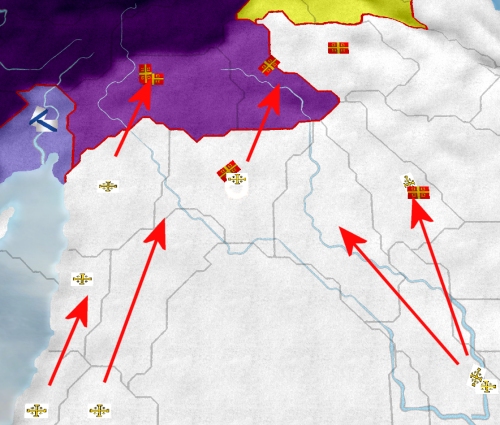
But the Kingdom had been bled white of manpower. There were almost no reinforcements left to reach the armies and many divisions were dangerously understrength. Nearly a hundred thousand bold soldiers of Jerusalem had lost their lives so far.
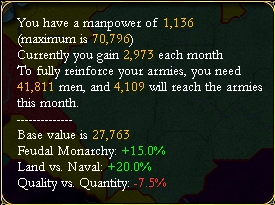
But the Byzantine alliance was suffering too, and with their attacking forces pushed back it was clear that Jerusalem was no easy prey. After much negotiation terms were reached.
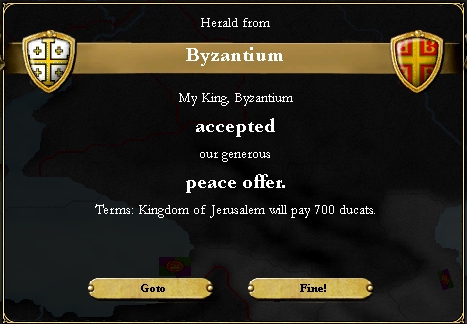
Even though it had only lasted two years, the war had been a harsh and bloody one. Moreover, the Kingdom of Jerusalem had lost. No, they hadn't lost any territory, but they'd been forced to pay humiliating war indeminities, and their prestige had suffered accordingly. Stabbed in the back, Jerusalem had been forced to abandon its victorious campaign against he Timurid infidel. Worse still, they'd been beaten by Orthodox Christians and their standing as the brightest light of the Catholic Faith had been tarnished.
The Kingdom of Jerusalem did not forget betrayal.
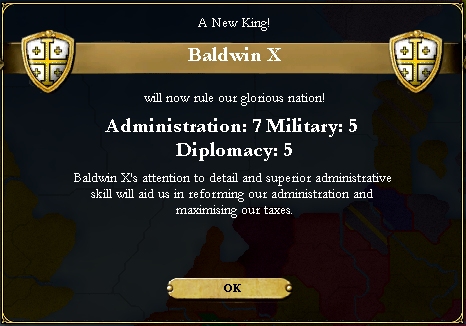
Two years later, when young King Baldwin X took the throne, he swore, on the grave of his father, that he would have vengence…
